-
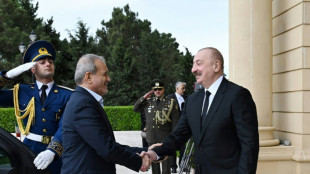 Iranian president visits Azerbaijan as ties warm
Iranian president visits Azerbaijan as ties warm
-
What we know ahead of the conclave
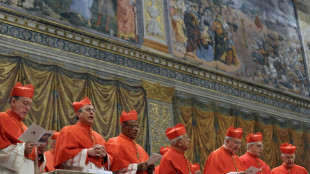
-
 Jannik Sinner launches foundation supporting children
Jannik Sinner launches foundation supporting children
-
Villagers on India's border with Pakistan fear war
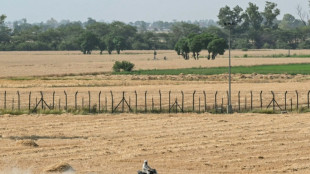
-
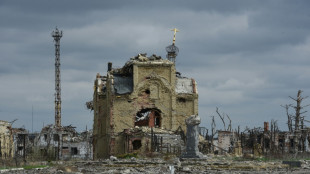 Putin announces surprise Ukraine truce for May 8-10
Putin announces surprise Ukraine truce for May 8-10
-
Conclave to elect new pope starts May 7
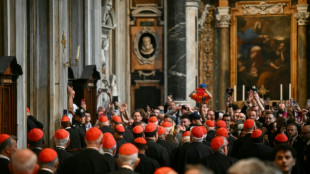
-
 Stock markets mostly rise amid trade talk hopes
Stock markets mostly rise amid trade talk hopes
-
India says signs deal with France for 26 Rafale fighter jets
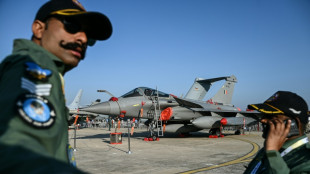
-
 Trump's deep-sea mining order violates global norms: France
Trump's deep-sea mining order violates global norms: France
-
India Kashmir crackdown sparks anger as Pakistan tensions escalate
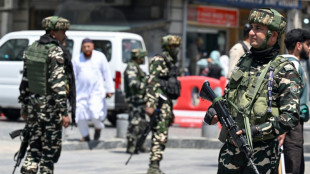
-
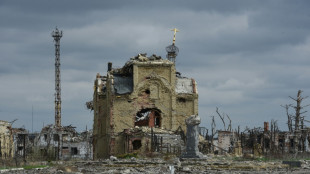 Russia says claims over annexed Ukraine regions key to peace
Russia says claims over annexed Ukraine regions key to peace
-
Austrian climber dies on Nepal mountain
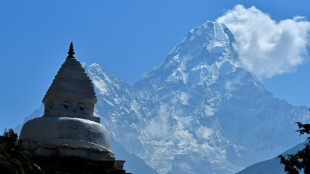
-
 Fires rage 2 days after Iran port blast killed 46
Fires rage 2 days after Iran port blast killed 46
-
Palestinian official tells ICJ Israel using aid blockage as 'weapon of war'
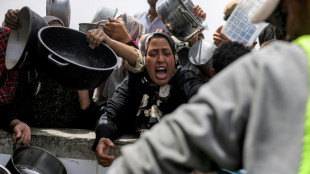
-
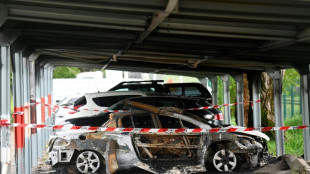 France arrests 25 in police raids after prison attacks
France arrests 25 in police raids after prison attacks
-
Kim Kardashian's next star turn is in a Paris courtroom

-
 Syria group says military chief arrested in UAE
Syria group says military chief arrested in UAE
-
Anger in Indian Kashmir at demolitions and detentions
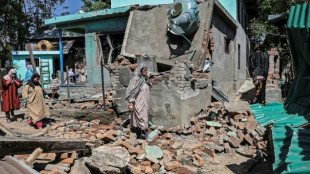
-
 Italy bank merger wave heats up as Mediobanca eyes Banca Generali
Italy bank merger wave heats up as Mediobanca eyes Banca Generali
-
Putin critic Johann Wadephul, Germany's incoming foreign minister

-
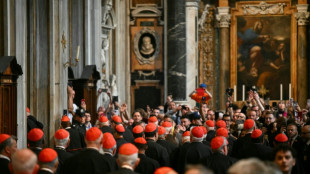 Cardinals expected to pick conclave date to elect new pope
Cardinals expected to pick conclave date to elect new pope
-
French mosque murder suspect arrested in Italy

-
 China says on 'right side of history' in trade standoff with US
China says on 'right side of history' in trade standoff with US
-
Stock markets mostly rise as investors eye trade talks

-
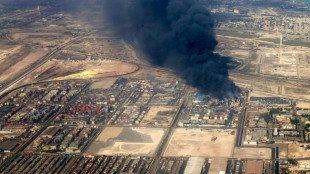 Fires rage 2 days after Iran port blast killed 40
Fires rage 2 days after Iran port blast killed 40
-
Yemen's Huthi rebel media says 68 killed in US strikes on migrant centre
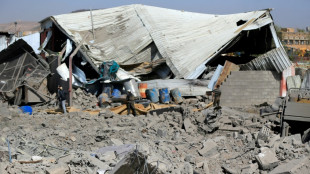
-
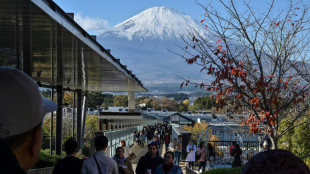 Man rescued from Mount Fuji twice in one week: reports
Man rescued from Mount Fuji twice in one week: reports
-
Canada votes for new government to take on Trump
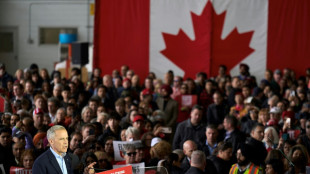
-
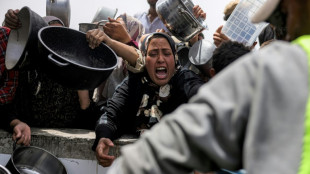 Top UN court to open hearings on Israel's aid obligation to Palestinians
Top UN court to open hearings on Israel's aid obligation to Palestinians
-
Philippines denies 'irresponsible' Chinese report on disputed reef
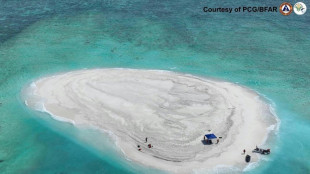
-
 T'Wolves win to push Lakers to brink, Celtics, Knicks and Pacers win
T'Wolves win to push Lakers to brink, Celtics, Knicks and Pacers win
-
Myanmar marks month of misery since historic quake
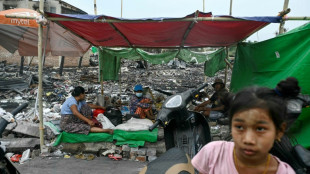
-
 South Korea's SK Telecom begins SIM card replacement after data breach
South Korea's SK Telecom begins SIM card replacement after data breach
-
Women's flag football explodes in US as 2028 Olympics beckon

-
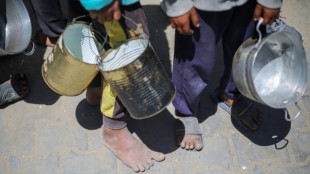 'Hunger breaks everything': desperate Gazans scramble for food
'Hunger breaks everything': desperate Gazans scramble for food
-
Suspect charged with murder in Canada car attack that killed 11

-
 Lost to history: Myanmar heritage falls victim to quake
Lost to history: Myanmar heritage falls victim to quake
-
Romania far-right rides TikTok wave in election re-run

-
 Trial begins in Paris over 2016 gunpoint robbery of Kim Kardashian
Trial begins in Paris over 2016 gunpoint robbery of Kim Kardashian
-
Trump thinks Zelensky ready to give up Crimea to Russia

-
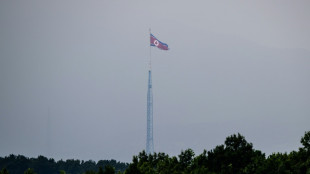 North Korea confirms troop deployment to Russia's Kursk
North Korea confirms troop deployment to Russia's Kursk
-
Romania presidential election re-run under Trump shadow
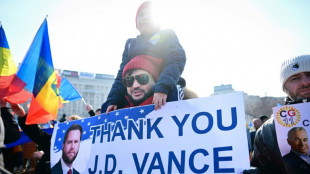
-
 Asian markets mixed as investors eye trade talks
Asian markets mixed as investors eye trade talks
-
T'Wolves push Lakers to brink of elimination, Celtics and Knicks win

-
 Suspect charged with murder in Canada car attack that left 11 dead
Suspect charged with murder in Canada car attack that left 11 dead
-
Smart driving new front in China car wars despite fatal crash

-
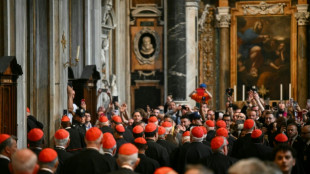 Cardinals set to pick conclave date to elect new pope
Cardinals set to pick conclave date to elect new pope
-
Miami's unbeaten MLS run ends after Dallas comeback

-
 After 100 days in office, Trump voters still back US president
After 100 days in office, Trump voters still back US president
-
US anti-disinformation guardrails fall in Trump's first 100 days
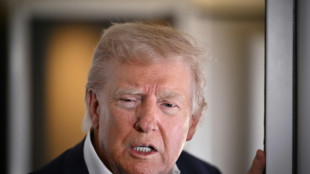
The Roman Empire and its downfall?
The fall of the Roman Empire has fascinated historians, political analysts, and history enthusiasts for centuries. Once an unparalleled power that stretched across much of Europe, North Africa, and the Middle East, Rome eventually succumbed to a complicated web of internal weaknesses and external pressures. But what factors most decisively contributed to its downfall?
Overextension and Resource Strain
One prominent reason for the Empire’s decline lies in its vast territorial expanse. As the Empire expanded, maintaining military and administrative control over far-flung provinces became an immense challenge. Garrisoning remote frontiers and sustaining essential infrastructure, such as roads and aqueducts, placed enormous financial and logistical burdens on the imperial administration. Over time, these obligations led to heightened taxation and social unrest, eroding the Empire’s stability from within.
Political Instability and Weak Leadership
Another fundamental weakness was Rome’s inability to establish a consistent and resilient political structure. Frequent coups, civil wars, and assassinations destabilised the imperial government. Short-lived emperors were often more focused on consolidating power and eliminating rivals than enacting long-term reforms. This lack of continuity in governance engendered bureaucratic inefficiency and thwarted coherent policymaking, leaving Rome ill-prepared to address growing internal and external threats.
Economic Decline and Hyperinflation
Economic disruptions also played a pivotal role. As wars grew costlier, silver coinage was devalued repeatedly, leading to rampant inflation. Confidence in the currency eroded, triggering a cycle of price increases and diminishing trade. Many farmers abandoned their land, amplifying rural depopulation and further undermining agricultural productivity. Trade routes, once the arteries of Roman commerce, became perilous, stifling economic growth and rendering the state increasingly vulnerable.
The Rise of External Threats
Simultaneously, external forces took advantage of Rome’s weakening grip. Germanic tribes and other barbarian groups pressed against the Empire’s borders, sensing the growing fragility of Roman power. Although Rome had once managed to integrate or repel these incursions, mounting economic strain and military overextension hindered an effective response. Over time, repeated invasions culminated in the sacking of Rome by the Visigoths in 410 CE and the eventual deposition of the last Western Roman Emperor in 476 CE.
Social and Cultural Transformation
Lastly, shifting social and cultural dynamics played a role. Traditional Roman values of civic duty and loyalty to the state gradually gave way to localised loyalties and a reliance on mercenary forces. The rise of Christianity, while not the sole cause of the Empire’s decline, reoriented cultural and political power away from older Roman institutions and towards the Church, reducing the emperors’ influence and the old civic order’s authority.
Conclusion No single event or factor can wholly explain the collapse of the Roman Empire. Rather, it was the convergence of overextension, economic instability, political turmoil, and shifting social foundations that led to Rome’s ultimate disintegration. While debates on the precise causes continue, most historians agree that the empire’s downfall underscores the fragile balance between power, governance, and societal cohesion—an enduring lesson for any ambitious political system.

Scientists: "Mini organs" from human stem cells

ICC demands arrest of Russian officers

Europe and its "big" goals for clean hydrogen

Putin and the murder of Alexei Navalny (47†)

Measles: UK authorities call for vaccinate children

EU: Von der Leyen withdraws controversial pesticide law

EU: Prison for "paedophilia manuals" and child abuse forgeries

EU: 90% cut of all greenhouse gas emissions by 2040?

How is climate change spreading disease?

Business: Is it important to speak multiple languages?

Trump's return could leave Europe 'on its own'



